Our Heritage
Life and Philosophy
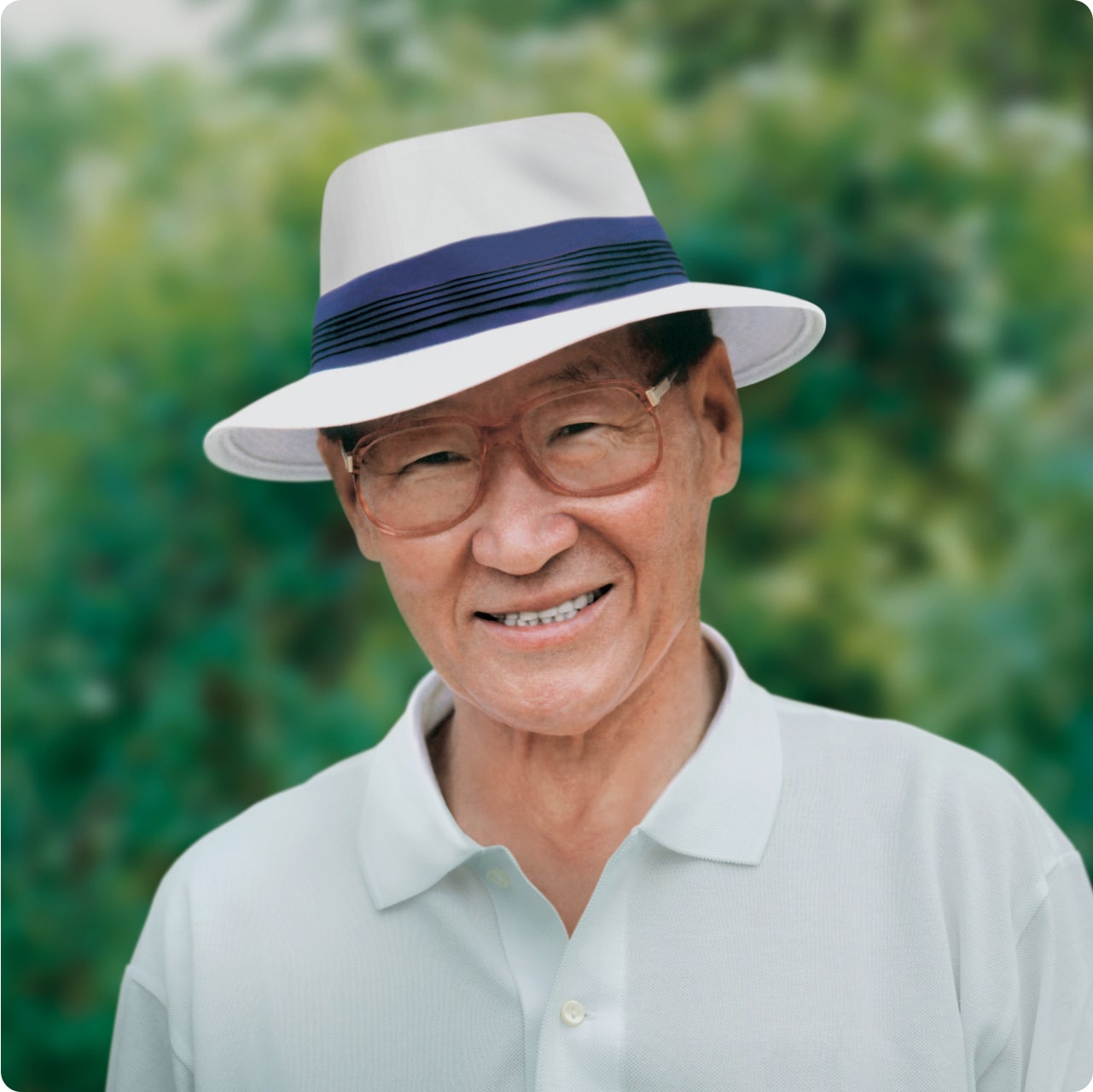
The Creative Challenger, Asan Chung Ju-yung
I have always found purpose in challenging the limits set by humanity and experiencing the joy of achieving them. I continue to do so even today.“
Asan was born in 1915 as a son of a poor farmer. He worked tirelessly to overcome poverty, and dedicated his whole life to building a prosperous nation through his businesses.
"There Are Hardships But Never Failures!"
A fearless pioneer with progressive ideas and a creative spirit! Asan was a patriot that was always thinking about the future of our society and nation. He was a philanthropist who embraced the difficulties of his surroundings and a robust supporter of the arts and culture. Until his passing in March 2001, Asan stood as a steadfast giant. Now, we reflect on his life and spirit, aiming to reflect it for our own.
"There was only a long journey of relentless racing,
giving my all with unwavering focus, passion, and dedication."
From an article written by founder Chung Ju-yung in a daily newspaper in 1981:
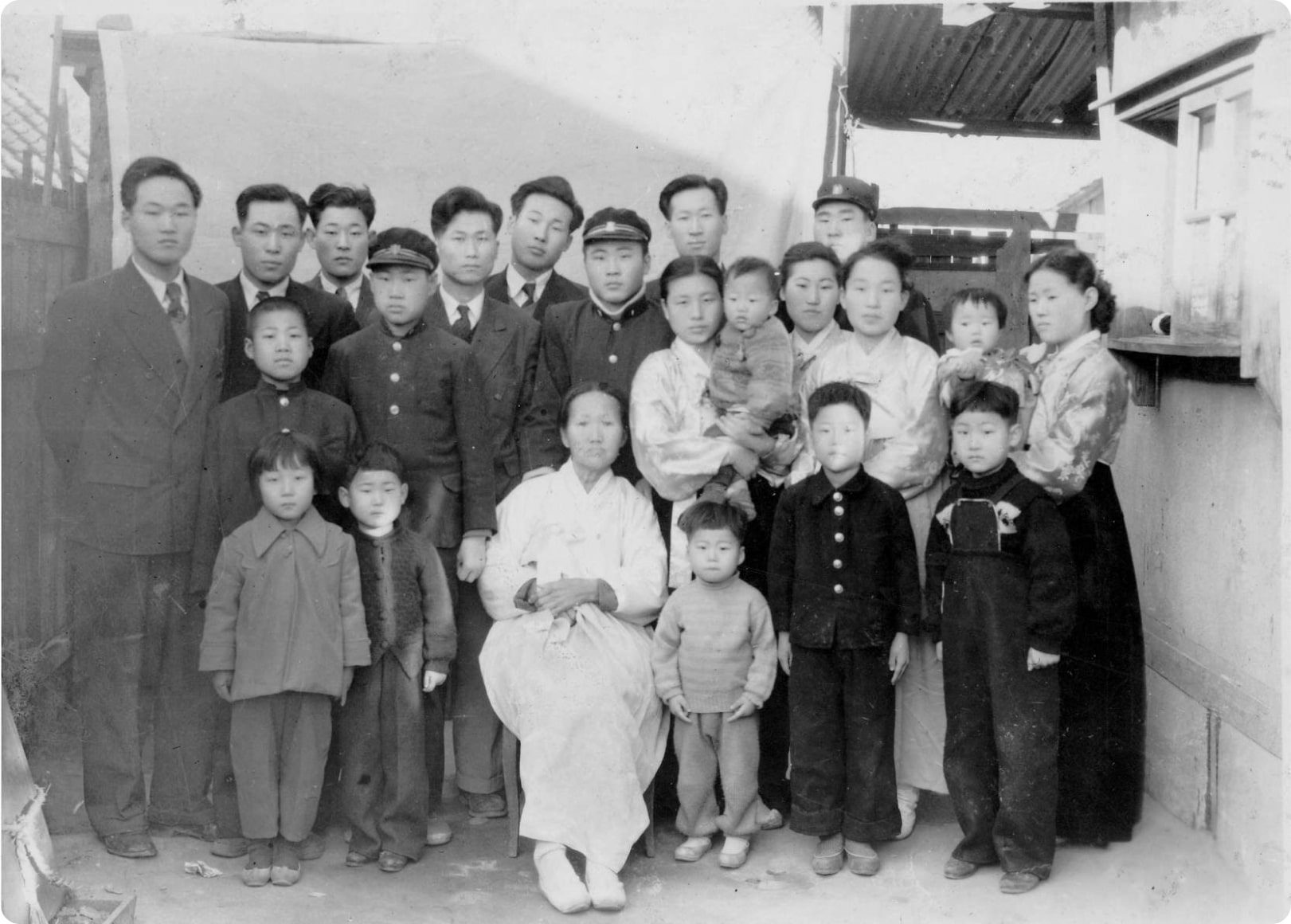
With his mother, Han Sung-sil, and his extended family in Beomil-dong, Busan, during refuge (1963).
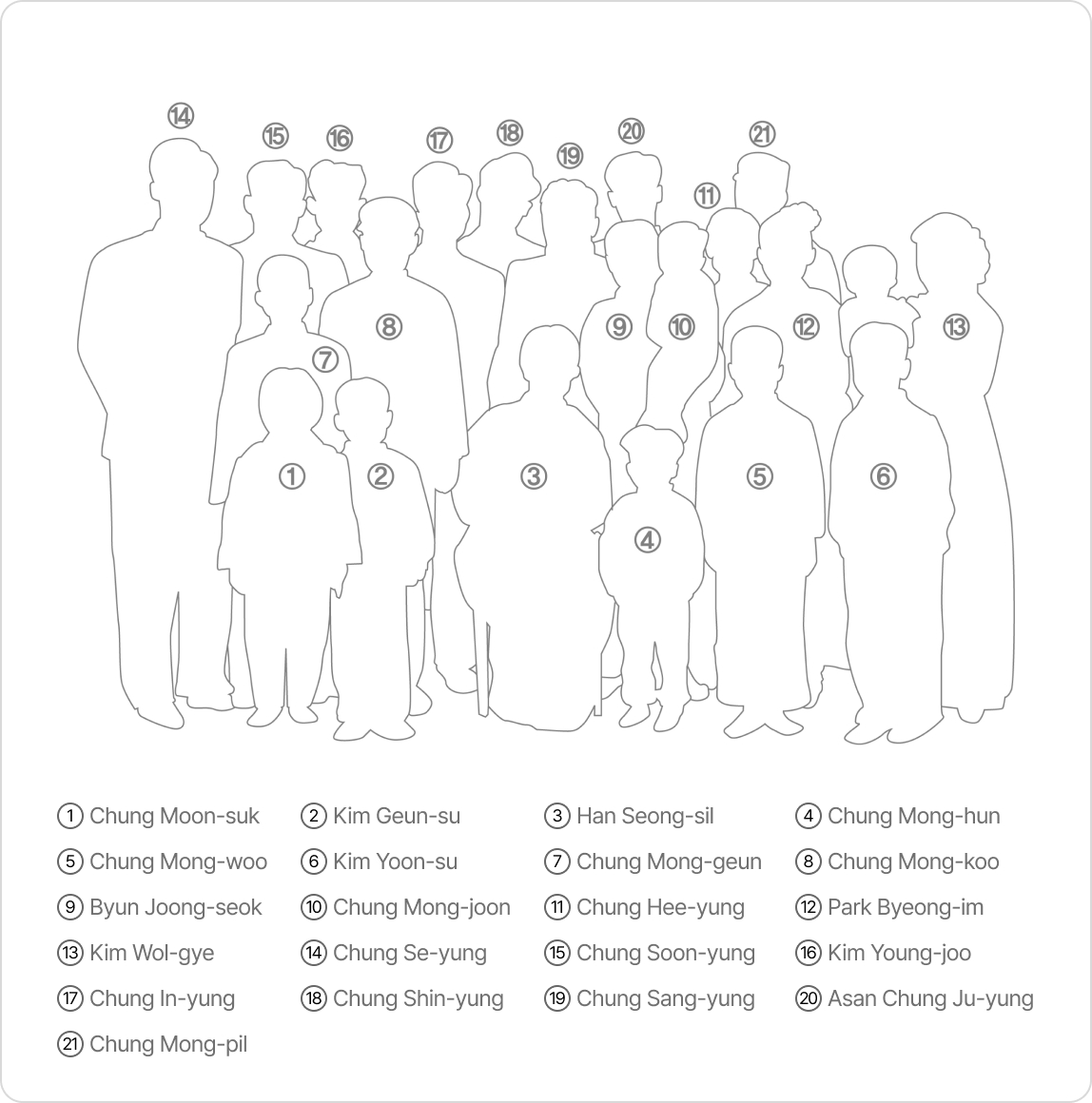
Head of an Extended Family, Asan
“ You are the eldest grandson.
Thus you must uphold the ancestral rites and lead your younger siblings. “
Asan always carried his father’s words in his heart. He did not shy away from his fate as the eldest son of a poor farming family,
nor did he settle for less. He worked hard for his family's happiness and raised his household as the head of an extended family.
"Being a respected head of the family" was Asan’s greatest joy and the driving force of life.
The Asan's Spirit
Humanism
Asan grew up in severe poverty, which motivated him to work with all his heart and body to overcome it. He knew too well that poverty could deprive a person of their ability to function as a human being. Asan devoted his entire life to ensuring society was ample, and the nation was robustly prosperous. He believed sincerely that without such conditions, people could not live and be treated as humans.
Asan was a true humanist who understood and practiced the belief that being well-provided for (常産) leads one to a good and virtuous person(常心).
Challenge and Pioneering Spirit
"If you dedicate yourself fully, there is nothing you cannot achieve!"
Asan inherited a rice store through honesty and diligence. With a firm belief in his ability, he overcame challenges and built today's Hyundai on a foundation of trust. Though he started with neither capital nor technology, he challenged the impossible with his two bare hands. He forged paths, built dams, and manufactured ships and cars.
"If you have the will, there is nothing you cannot achieve."
With his firm will and pioneering spirit, he opened up the future.
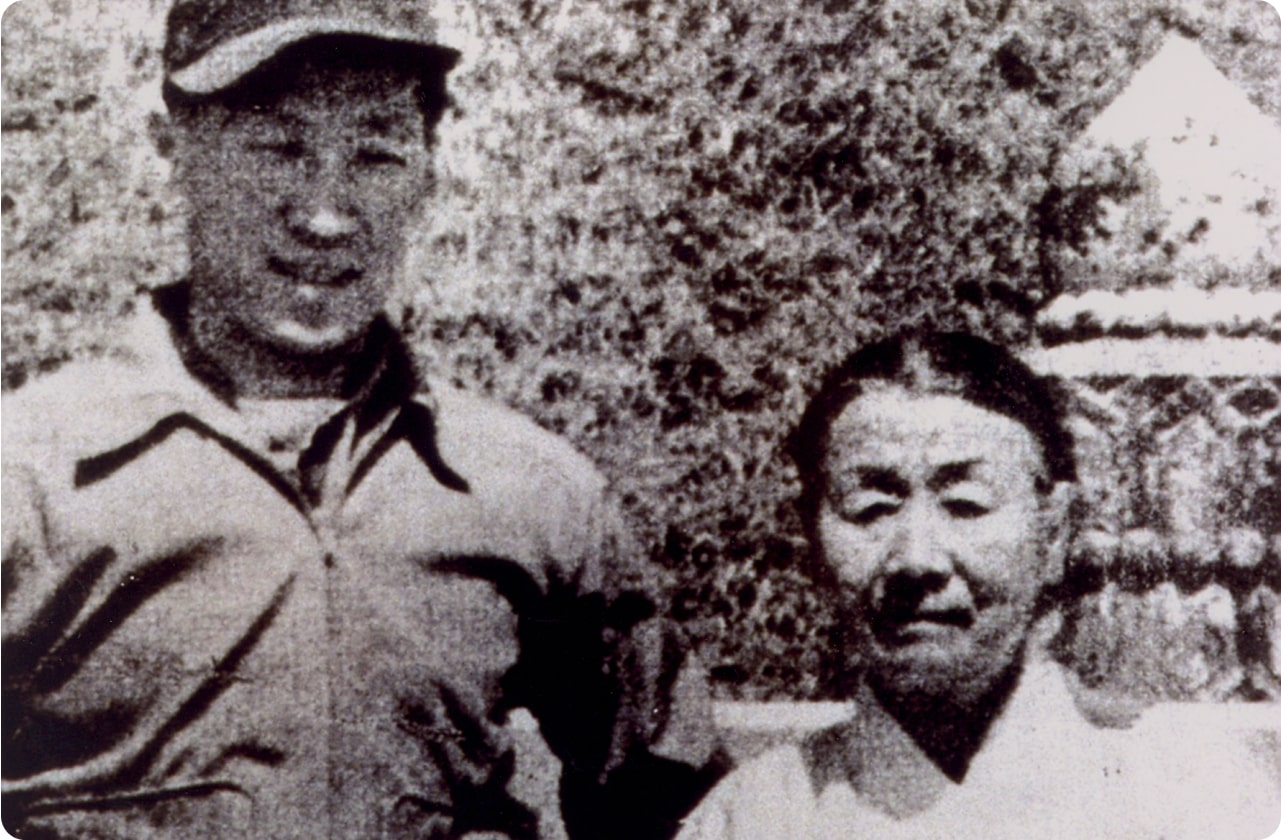
Asan in his youth with the owner of Bokheung Rice Shop (mid-1930s)
Bicycle Delivery at Bokheung Rice Shop and Asan's Diligence
Three days into his job at Bokheung Rice Shop, Asan had to deliver a load of rice and red beans. It was pouring rain and it was his first time delivering goods on a bicycle. He wobbled and soon fell into the mud. The bike was bent, and the rice and red beans were covered in mud.
He spent three nights practicing the bicycle while loaded with goods. He also learned techniques from a more experienced delivery boy. Asan eventually became an exceptional delivery boy, being able to ride any where even with two sacks of rice loaded on the back. He was always the first to wake up and clean the store every morning. Impressed by Asan's diligence and reliability, the owner gifted him a new bicycle and eventually passed on his rice shop.
Frugality
Three pairs of old shoes (repeatedly repaired to last 30 years with nails and new soles). Growing up in poverty, Asan's father collected cow and dog dung even in the dead of winter, while his mother gathered children's urine from the village school to fertilize their fields. From his parents, young Asan learned much about life.
Even as his circumstances improved and life stabilized, Asan remained frugal. He would wear a single suit for spring and autumn and repaired his shoes to wear over 30 years. Walking became a habit for him.
"If you walk that much, won't your sneakers wear out and cost you more than fuel?"
To this question from Chairman Chung Mong-joon, Asan replied, "When my sneakers wear out, I patch them with old tires."
For Asan, frugality was about accumulating wealth for more meaningful purposes.
In an era when comfort and luxury are often seen as measures of life, the actual value of wealth can be found in Asan’s lifelong diligence and frugality.
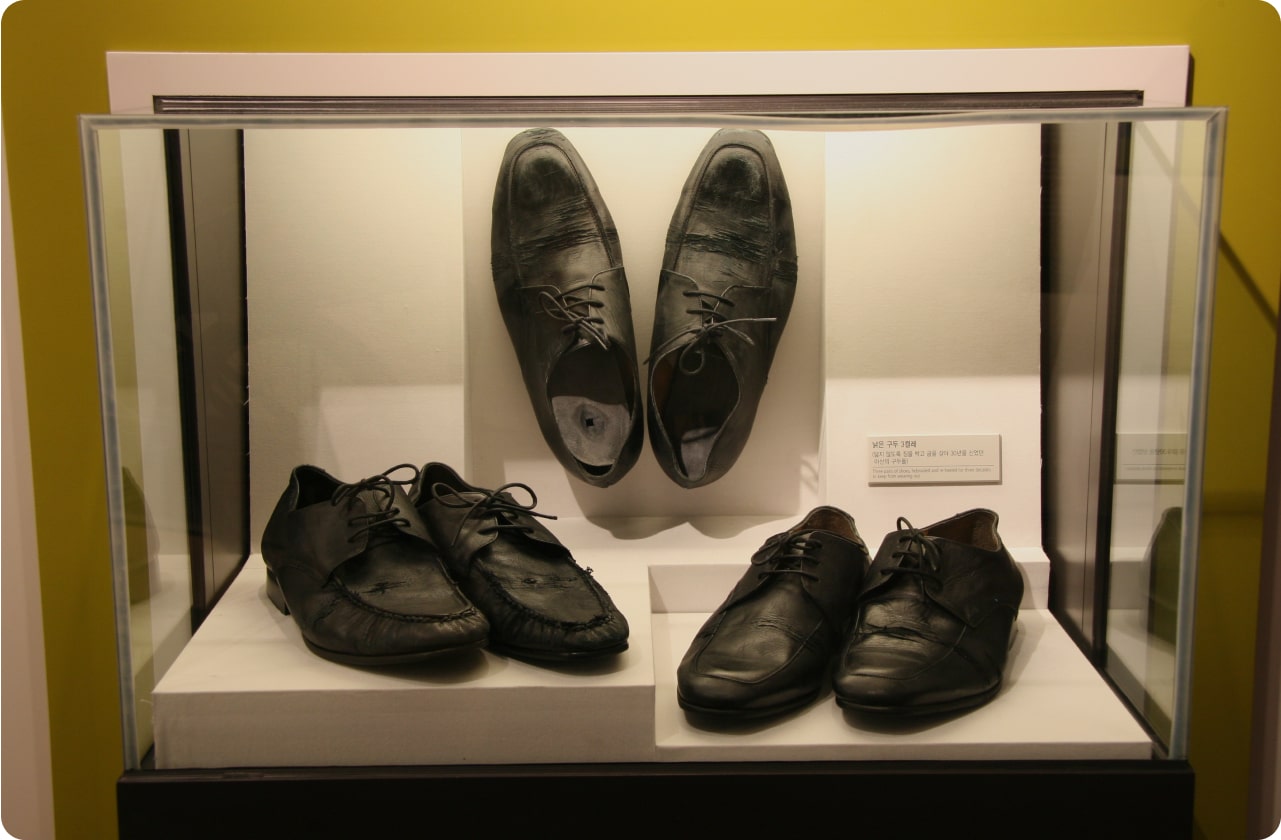
Three pairs of old shoes (repeatedly repaired to last 30 years with nails and new soles)
“ The greatest weapon for a businessman is
to have the world's most sincere, kind, and excellent talent. ”
From Chung Ju-yung's memoirs
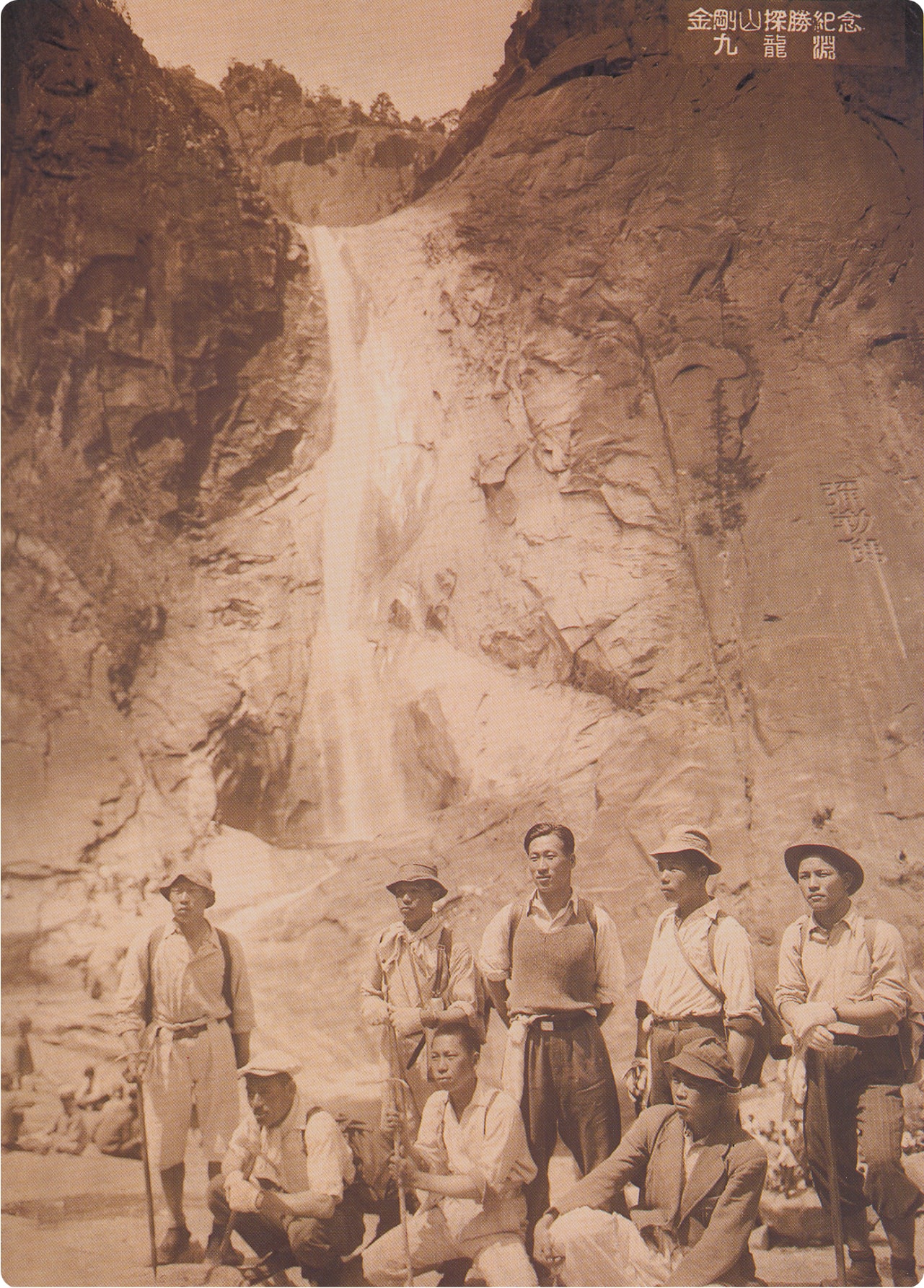
Chung Ju-yung climbing Mt. Geumgang with his employees during his days at Hyundai Motor Service Center. (In the mid-1940s)
Together with Employees
A company is a human organization
for people! “
To Asan, employees were precious 'family.' He stood with them in the scorching summer sun and biting winter winds at construction sites. He listened to their voices directly and engaged in solving problems. He would wrestle with them at employee sports events, and enjoy drinks all night at training workshops.
Asan’s trust was shared from heart to heart, uniting both the management and labor.
Together with the Family
Asan, the eldest of eight siblings in a poor farming family, assumed the role of head of the household from an early age. Driven by a deep sense of responsibility not to let his family starve and a determination to create a happy and harmonious family, he was always strict with himself.
With a sewing machine as her only property, his wife, Byeon Joong-seok, gave Asan the peace of mind to focus on economic development.
To strictly train his children, everyday he sat at the morning table and accompanied the early morning walks to the company.
With a father’s dedication to his family, Asan spent his lifetime striving for the happiness and prosperity of his family, company, and country.
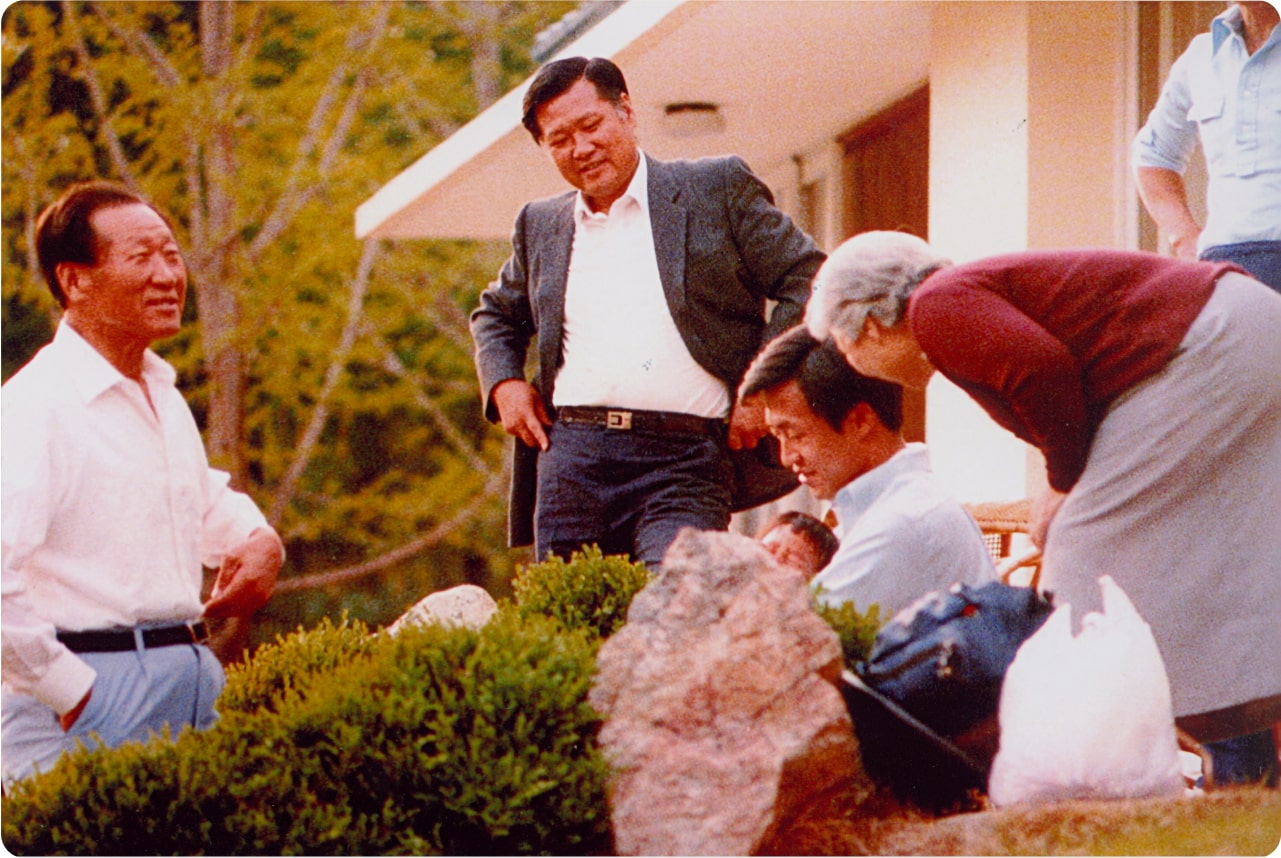
Asan spending quality time with his family in Mabuk-ri. (From left: Asan, Chung Mong-koo, Chung Mong-joon, Byeon Joong-seok, early 1980s.)
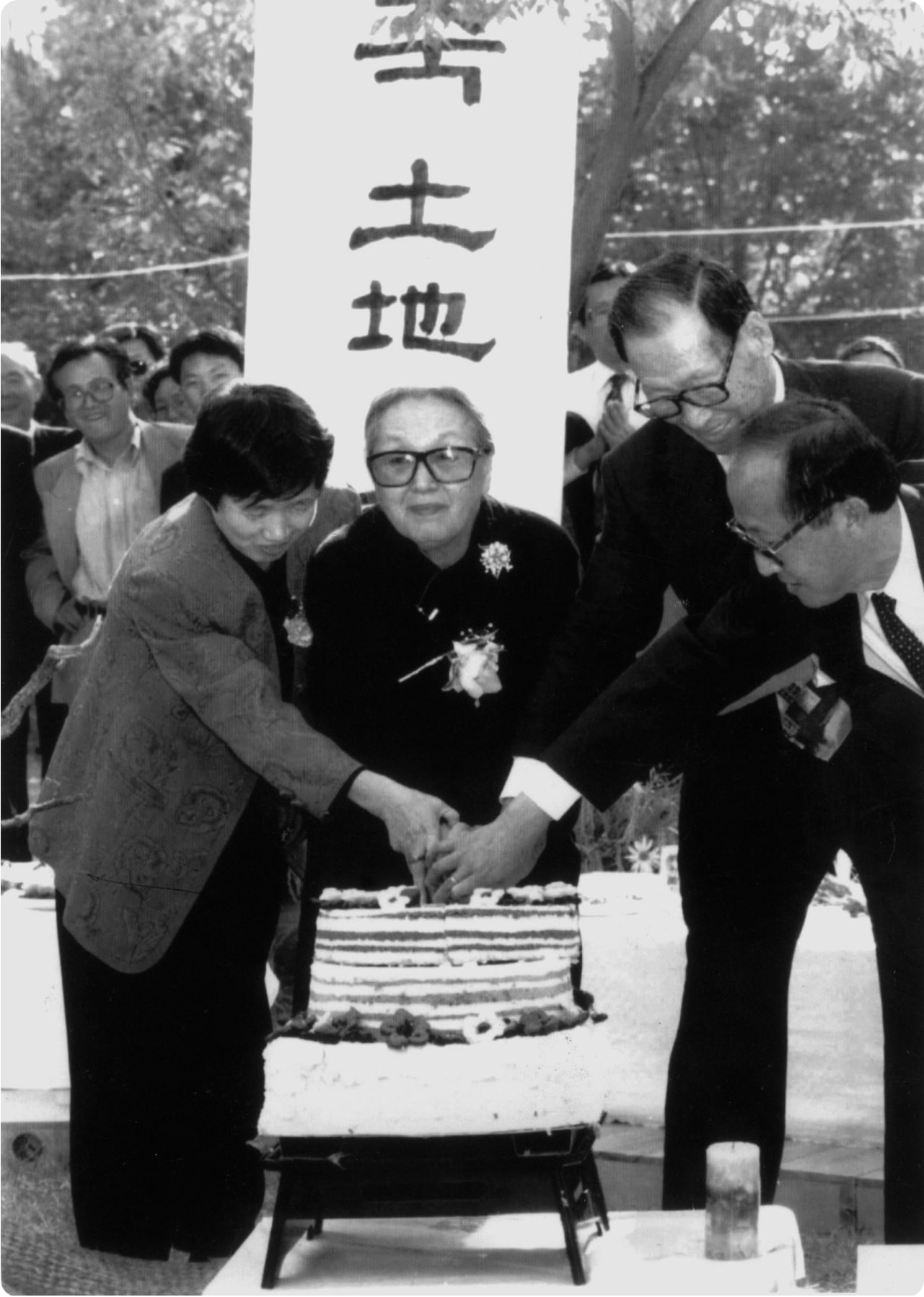
Celebrating the completion of the novel "Toji" with writers Park Wan-suh, Park Kyung-ri, Chung, and Kim Hyeong-guk (1994).
Engagement with Writers
During his impoverished and challenging childhood, Asan was the only one in his village who visited the village headman's home to read newspapers. Inspired by the serialized novel "The Soil" by Lee Kwang-su in Dong-A Ilbo, he dreamed of becoming a lawyer and developed a broader view of the world through reading.
As an adult, despite his busy life, Asan shared his heart with writers, sometimes on the beaches of Ulsan and sometimes at overseas construction sites. He also participated in the Seaside Poets' School at Gyeongpo Beach and Anmyeo Island during the summer.
Asan's passion for literature allowed him to live a life of purity.
"I feel great joy and happiness when I find a sentence in a book that alighn with my thoughts."
He refined simple language to pursue greater happiness. Truely, he was a happy poet.